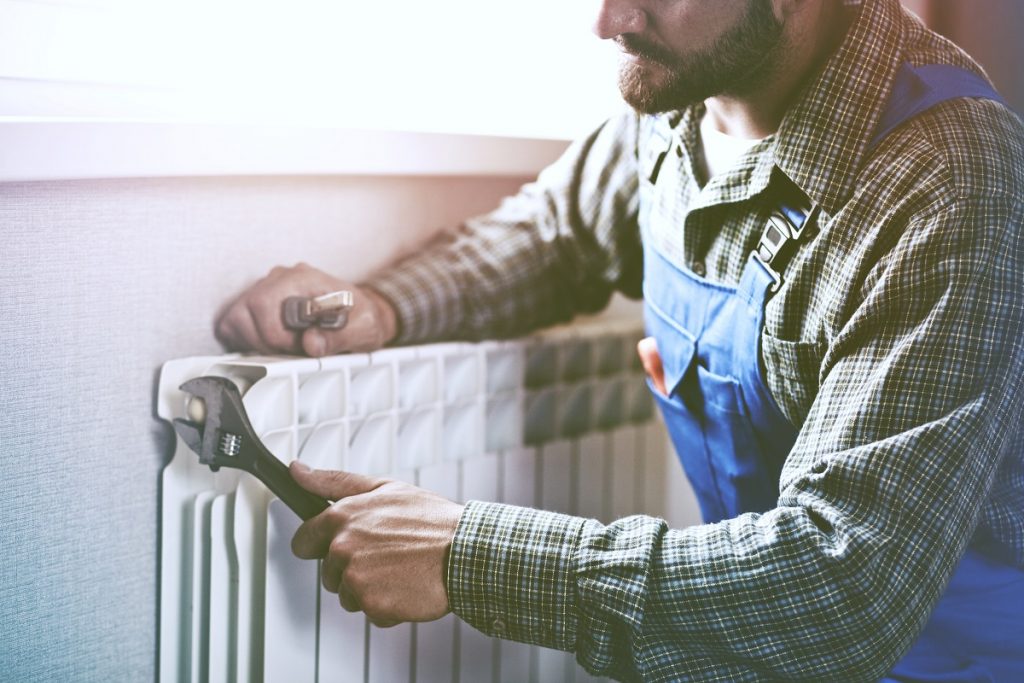-
Certified roofers with warranties provide both material and labor coverage, often backed by major manufacturers.
-
Full-system warranties cover all roofing components—shingles, underlayment, vents, and flashing—plus tear-off and reinstallation.
-
Warranties have exclusions, including storm damage, poor maintenance, DIY repairs, and attic ventilation issues.
-
Homeowner responsibilities include registering the warranty, performing routine maintenance, and scheduling regular inspections.
-
Not all lifetime warranties are equal—many become prorated or non-transferable over time.
-
Comparing warranties before choosing a roofer can save you thousands in future repair costs.

When investing in a new roof, homeowners often ask: “What kind of protection do I really get?” Roofing is a major expense—often costing tens of thousands of dollars—and a strong warranty can make the difference between peace of mind and costly repairs down the line. However, not all warranties are created equal.
Working with certified roofers with warranties from trusted manufacturers like GAF, Owens Corning, or CertainTeed means you get more than just labor—you get coverage that includes high-quality materials, professional workmanship, and long-term support.
This comprehensive guide will explain:
-
The types of warranties you can expect from certified roofers
-
What is (and isn’t) covered in a certified roofing contractor warranty
-
What you must do to keep your warranty valid
-
How to compare and choose warranty-backed certified roofers for your project
I. What Is a Roofing Warranty—and Why Certification Matters
A roofing warranty is a formal guarantee that your roof’s materials and/or the contractor’s workmanship will last a specific amount of time without defects. These warranties are typically issued by two parties:
-
The manufacturer (for the roofing materials)
-
The installer or roofer (for the quality of installation)
When you choose a certified roofing company with a warranty, you’re protected by both parties under enhanced coverage. Certified installers are approved by manufacturers for meeting strict quality, training, and performance standards.
✅ Why Homeowners Should Insist on Certified Roofers with Warranties:
-
Extended protection beyond typical coverage
-
Higher-quality materials often required for system warranties
-
Trained and vetted installers who follow manufacturer specifications
-
Peace of mind knowing both materials and labor are covered
II. Types of Warranties Certified Roofers Offer
When you hire warranty-backed certified roofers, you typically receive more robust protection than with standard roofing contractors. Here are the three main types of warranties to understand:
1. Manufacturer’s Material Warranty
-
Covers defects in roofing materials, such as shingles, underlayment, and ice barriers.
-
Basic warranties are usually limited lifetime (prorated after 10–15 years).
-
Enhanced versions are available only through certified roofing contractors.
Covered Examples:
-
Shingles cracking, curling, or blistering within a few years
-
Granule loss caused by manufacturing defects (not weather)
-
Delamination of underlayment or membrane failures
2. Workmanship Warranty (Labor)
-
Covers installation errors made by the roofing company.
-
Varies greatly: some uncertified roofers offer only 1–2 years, while certified roofers offer up to 25 years or even lifetime workmanship coverage under certain programs.
Covered Examples:
-
Incorrect shingle nailing pattern or alignment
-
Improper installation of flashing around chimneys or vents
-
Poor sealing or underlayment application
3. System Warranty (Enhanced or Extended)
-
Offered exclusively by certified roofers with warranties tied to a full roofing system from one manufacturer.
-
Requires using all branded components: shingles, starter strips, underlayment, vents, ridge caps, and drip edges.
System Warranty Benefits:
-
Up to 50 years of full coverage on materials and labor
-
Non-prorated for a longer time (vs. declining coverage)
-
Includes tear-off, disposal, and reinstallation costs
-
Often transferable if the home is sold
III. What’s Covered in a Certified Roofing Contractor Warranty
Certified roofers are held to higher standards by roofing manufacturers. Their warranties provide far broader and longer-lasting protection than standard contracts.
️ Detailed Coverage Offered by Warranty-Backed Certified Roofers:
✅ Material Defects
-
Cracks, blisters, or splits not caused by external damage
-
Granule loss beyond acceptable tolerances in first 5–10 years
-
Sealant failure or shingle separation due to poor bonding
✅ Roofing System Components
-
Starter shingles and hip & ridge caps
-
Synthetic underlayment and ice & water barriers
-
Ridge vents and attic exhaust systems
-
Metal flashing and drip edges (if part of the certified system)
✅ Labor & Installation Workmanship
-
Improper alignment or overlapping of shingles
-
Inadequate sealing or fastening
-
Flashing gaps causing water infiltration
-
Incorrect slope installation for specific materials
✅ Cost Coverage
-
Cost of removing faulty materials
-
Full replacement labor and new materials
-
Debris removal and cleanup after repair
✅ Transferability
-
Many warranties from certified roofers can be transferred once to the next homeowner.
-
Transfer must usually occur within 30–60 days of home sale and often requires a small fee.
Pro Tip: Always request written confirmation that your roofing contractor is certified by the manufacturer and has registered your warranty after installation.
IV. What’s Not Covered in Certified Roofing Warranties
Even premium certified warranties have exclusions. Knowing what’s not covered can help you avoid denied claims and future frustration.
❌ Common Exclusions in Certified Roofing Warranties:
⚠️ Acts of Nature
-
Damage from hurricanes, tornadoes, hail, earthquakes, or lightning
-
Wind damage beyond specified mph ratings (e.g., 110–130 mph for most shingles)
-
Tree limb or debris impact
⚠️ Improper Maintenance
-
Clogged gutters causing water backup
-
Moss or algae buildup damaging shingles
-
Failure to clean off leaves or snow
-
Ponding water due to blocked drains or sagging roof
⚠️ DIY or Unauthorized Repairs
-
Installing a skylight, satellite dish, or solar panel without using an approved technician
-
Hiring a non-certified contractor for repairs
-
Attempting DIY fixes that violate installation standards
⚠️ Ventilation Issues
-
Overheating in attic spaces due to poor airflow
-
Excessive moisture buildup under the roof deck
-
Mold or mildew caused by lack of ridge/soffit venting
⚠️ Cosmetic Changes or Natural Aging
-
Normal color fading of shingles over time
-
Minor blistering or curling not affecting performance
-
Aesthetic issues unrelated to water resistance or structural integrity

V. Homeowner Responsibilities to Keep Your Warranty Valid
Certified roofing warranties come with homeowner obligations. Failing to meet these requirements can void even the best warranty.
How to Maintain Eligibility for a Certified Roofing Contractor Warranty:
1. Register Your Warranty Promptly
-
Must often be done within 30–60 days of installation
-
Requires homeowner name, address, contractor info, and product list
-
Most manufacturers allow online or paper registration
2. Schedule Regular Roof Inspections
-
Every 12 to 24 months is recommended (some warranties require this)
-
Must be performed by a qualified roofing professional
-
Keep inspection reports as proof
3. Maintain the Roof and Gutters
-
Clean gutters at least twice per year
-
Remove moss, algae, and debris from the roof surface
-
Prevent overhanging branches from contacting shingles
⚠️ 4. Address Issues Promptly
-
Report any signs of leaks or damage immediately
-
Use only certified roofers for any repairs
-
Don’t delay action or attempt DIY fixes
5. Transfer the Warranty When Selling Your Home
-
Follow manufacturer’s instructions (usually a transfer form and small fee)
-
Failure to transfer correctly may void the warranty for the next owner
VI. Comparing Roofing Warranties: What to Look For
Choosing between roofing companies? Here’s how to evaluate warranty offerings and find the most reliable certified roofers with warranties.
Key Comparison Factors:
| Feature | Basic Contractor | Standard Manufacturer | Certified Roofing Contractor |
|---|---|---|---|
| Coverage Length | 1–5 years | 10–25 years | 25–50 years or lifetime |
| Labor Coverage | No | No | Yes |
| Materials Covered | Basic only | Shingles | Full system |
| Transferable? | Rarely | Sometimes | Yes (1x or lifetime) |
| Tear-off/Reinstallation | No | No | Yes |
| Certified Installer Required? | No | No | Yes |
Smart Questions to Ask:
-
Are you certified to install [manufacturer name] roofing systems?
-
What kind of labor warranty do you provide?
-
Is the warranty transferrable to a new owner?
-
What’s excluded from coverage?
-
Will you register the warranty for me?
VII. Common Roofing Warranty Myths (Debunked)
❌ Myth 1: “Lifetime warranty means my roof is covered forever.”
Reality: “Lifetime” typically refers to the expected service life of the roof while you own the home. After 10–15 years, most warranties become prorated, covering less over time.
❌ Myth 2: “All damage will be covered.”
Reality: Only specific defects or installation issues are covered—not storm damage, neglect, or poor ventilation.
❌ Myth 3: “Any contractor can fix my roof and keep the warranty.”
Reality: Using a non-certified contractor can void your warranty—even for minor repairs. Always go back to your original certified roofer.
Conclusion: Protect Your Roof by Choosing Certified Roofers with Warranties
Not all roofing warranties offer the same protection. Working with a certified roofer offering warranty-backed services means you get the highest level of protection—both in terms of materials and workmanship.
These warranties are:
-
Longer-lasting
-
More comprehensive
-
Backed by leading manufacturers
-
Transferable to future homeowners
-
Enforceable through a trusted, certified installer network
To protect your home and investment:
-
Choose a certified roofing company approved by the manufacturer.
-
Make sure they offer a registered roofing system warranty.
-
Maintain your roof and act quickly when problems arise.
Your roof is your home’s first line of defense. Don’t just trust anyone with it—trust certified roofers with warranties that truly stand behind their work.

